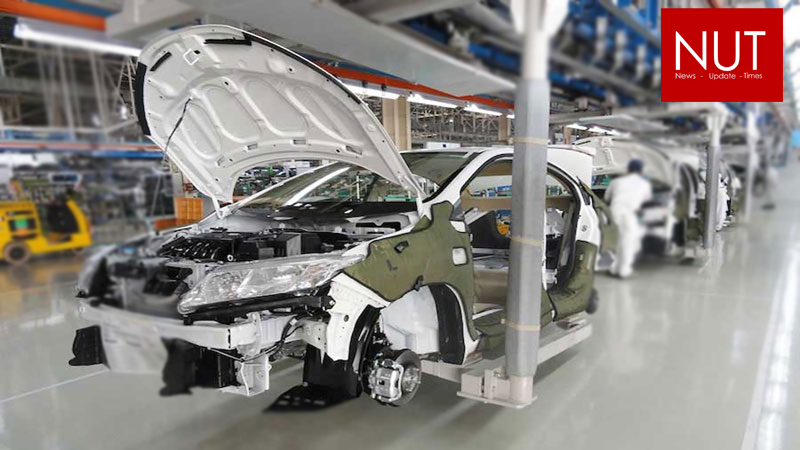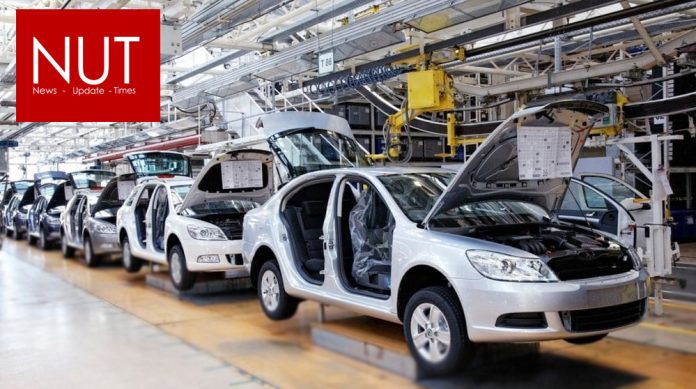Areeb Haider
Today, Micro-processors are essential components in all electronic and mechanical products, ranging from Cell-phones and computers to Automobiles and appliances, etc. These tiny, but expensive silicon wafers offer versatile technological capabilities to control and perform various functions, with more accuracy and reliability, in gadgets, systems and devices, created by industries like; consumer electronics, bio-tech, automobiles, etc.
After a year of extreme global recession caused by Covid-19, economies world over are getting into recovery phase and an increasingly large number of people are buying new automobiles and consumer electronics.
This sudden boom in demand has caused a severe shortage and scarcity of microprocessors used by manufacturers, internationally. Over the decades, automobiles have evolved from primarily mechanical machines to smarter-vehicles, with multiple intelligent-systems, digital displays, electronic functions and GPS/internet connectivity, all controlled by these Silicon-chips and software. So, today’s car producers need hundreds of innovative chips to build these cars.
Automobiles manufacturing is also among the Pakistani industries that have achieved a rapid revival after the pandemic. The demand for cars in the country has shot up over the past few months. But unfortunately, since the Chip-makers’ supply-chains have become erratic, these Chip-reliant car-makers have been forced to adjust their production in almost every country, including Pakistan.
Some of the new players in Pakistan’s automobile industry are also suffering production-delays due to this global challenge, which is beyond the control of these companies. These are among the biggest, most resourceful ‘Original Equipment Manufacturers’ (OEMs) and automobile-producers, who have recently made large-scale investments in Pakistan. But in the early phase of their operations in this promising market, they are faced with this debilitating chip-challenge.
While this dilemma may pose challenges for these newly-established brands in Pakistan. The crisis will have a huge negative impact on the Foreign-Direct Investments (FDI) all over Pakistan.
Today, the biggest global car-manufacturers, including: General-Motors, Ford, Volkswagen, Honda, Toyota, etc. are expected to miss more than $61 billion of sales, cumulatively. Nearly 800,000 less automobiles will be produced this year, causing huge losses and job lay-offs in this vast sector.
The lead-time for fulfilling bulk orders for Micro-processors, has extended from the previous average of 12 weeks, to a current average of 26 weeks. Therefore, manufacturing of electronic components in several industries has been slowed-down or halted, while many technology goods are not readily available in stores today. The non-availability of microchips has also led to a 5% to 20% price-hike in digital & electronic products, as the cost of Chip-manufacturing and innovation has also risen exponentially, over the past one year. The world must take immediate corrective measures, because the industries cannot afford to let this crisis last till 2022.
As the global Silicon giants like; Samsung, ‘Taiwan Semiconductors’ (TSMC) and Intel, along with the political leaderships in developed countries, are striving to arrange large-scale investments in the global Chip-manufacturing sector, additional capacity can be built very rapidly to rescue the industries. Fortunately, many industry-analysts are hopeful that this chip-shortage is short-term and will ease in the coming months, as soon as the supply will be adjusted to meet the extra-ordinary rise in demand.
 In the coming years, the introduction of more Electric-Cars on a mass scale, will further increase the demand for Integrated-Circuits (IC). So, the world must get ready to produce even bigger quantities of Logic-Chips at reduced costs, to stabilize the global economy and recover from the losses incurred during the pandemic.
In the coming years, the introduction of more Electric-Cars on a mass scale, will further increase the demand for Integrated-Circuits (IC). So, the world must get ready to produce even bigger quantities of Logic-Chips at reduced costs, to stabilize the global economy and recover from the losses incurred during the pandemic.






